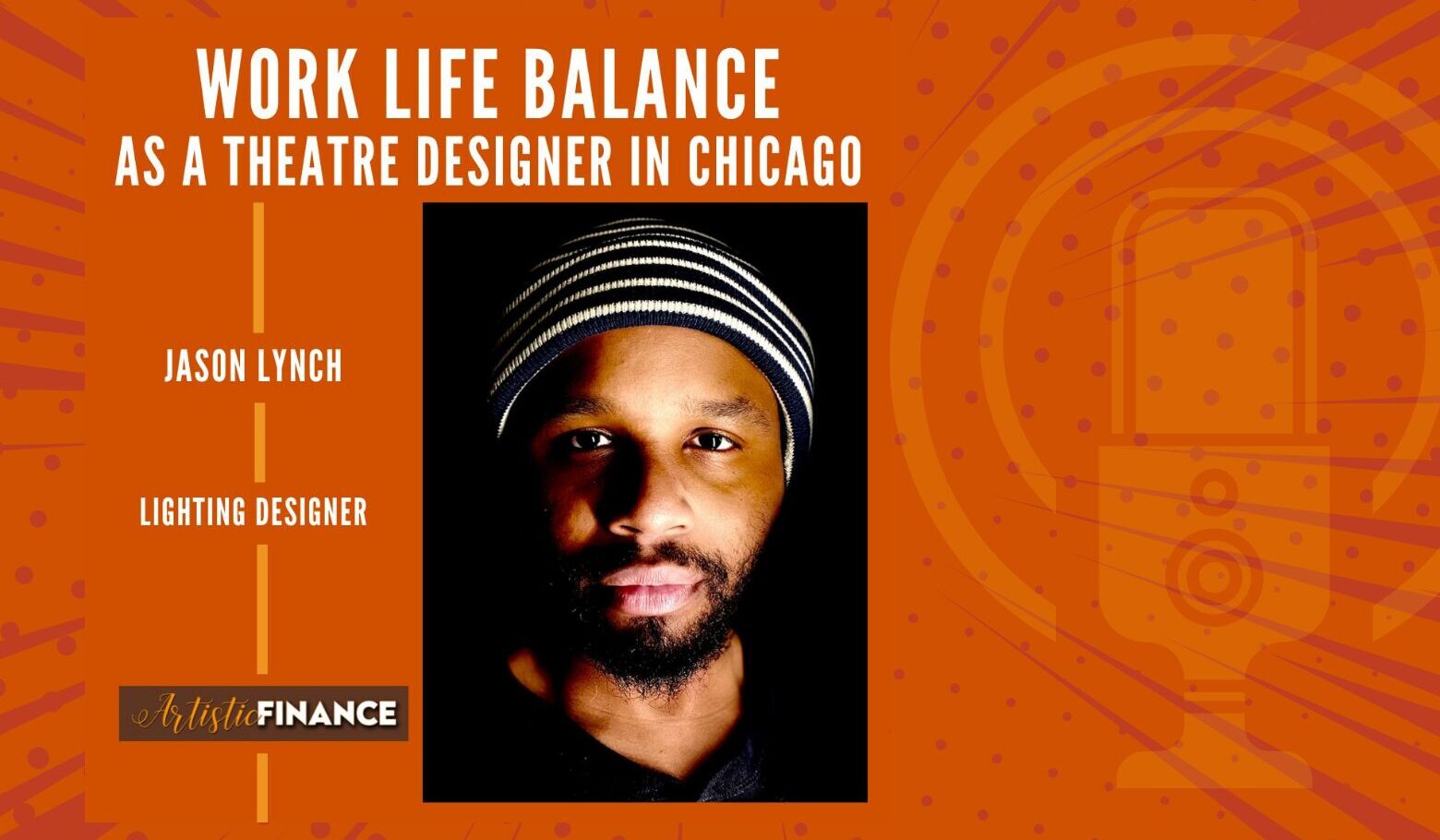Jason Lynch: Work Life Balance as a Theatre Designer

In this episode of Artistic Finance podcast, lighting designer Jason Lynch shares how he’s built a successful freelance career in Chicago while staying financially organized, debt-free, and creatively fulfilled. From managing quarterly taxes and investing in a Roth IRA to negotiating fair pay and supporting emerging designers, Jason offers a candid and often humorous look at the business side of theatrical design. Below is an insight into some of the topics covered in this Podcast.
How did Jason Lynch get started in lighting design, and what was his career path?
Jason began as a stage manager at Texas Tech University but transitioned to lighting design halfway through. After graduating, he interned at Forestburgh Playhouse and spent a season at Syracuse Stage. He returned home to work at Dallas Opera for over five years while also working summers at Santa Fe Opera. In 2015, he relocated to Chicago to pursue freelance work full-time, which he continues today. He’s designed across opera, dance, and theater, including a return to opera with Detroit Opera and upcoming work at Washington National Opera.
How does Jason manage his finances as a freelancer?
Jason tracks all incoming payments in a detailed Excel spreadsheet, listing fee installments, reimbursements, and per diems. He does this to avoid confusion from overlapping checks and to maintain visibility on cash flow, especially when payments are routed through his agent. For taxes, he calculates quarterly estimated payments (5% federal, 2.5% state) and uses the check issue date (not receipt date) for IRS alignment. He also checks his records against transcripts on IRS.gov to ensure accuracy. His diligence stems from experiencing inconsistent pay schedules and wanting to maintain control over his income and tax obligations.
What financial strategies or investments has Jason found most useful?
Jason is an advocate for opening a Roth IRA early. He committed to doing so at age 30 and has contributed ever since, maxing it out at the start of 2025 for the first time. He invests primarily in ETFs like SPY (S&P 500 index fund), appreciating their automatic diversification and rebalancing. While he once dabbled in stock-picking (including DraftKings and meme stocks like AMC and GameStop), he now sticks mostly to index and dividend-focused funds. He also experiments with fractional real estate investing through platforms like Arrived and Lofty.
What was Jason’s highest-paid theater gig, and how does he approach negotiating?
Jason’s best-paid gig to date was at Oregon Shakespeare Festival, where he earned $13,000 for a single production — a fee he noted felt commensurate with his time and artistry. More recently, Indiana Repertory Theatre proactively raised his fee above the minimum AEA D rate ($3,800–$3,600 range) to $5,000 to reflect their appreciation for his work. Jason emphasizes the importance of negotiating not just fees, but also working conditions — like having a desk, private housing, and sufficient support. When budgets don’t allow for assistants, he’s even used his own funds to pay collaborators fairly.
What tools, systems, or philosophies help Jason balance his career and life?
- Work-life balance in Chicago: Jason praises Chicago’s artistic community and affordability, encouraging early-career artists to consider it as an alternative to NYC. He describes it as a “stepping stone” city rich in opportunity, with Broadway tours and large-scale productions.
- LLC setup: Jason established an LLC in 2019, which allowed him to qualify for pandemic-era small business loans and gain access to more financial tools.
- Calendar as diary: He uses his calendar religiously, logging every hour of work, tech, and travel. This supports both tax prep (especially mileage) and project management.
- ‘Keep It Human’ philosophy: Jason writes “K.I.H.” on a sticky note as a reminder to bring empathy to all professional interactions — especially when dealing with production managers or during high-stress tech.
- Problem-solvers over problem-finders: He values collaborators who offer solutions rather than just identifying obstacles, and he tries to be that person on every project.
- Giving back: Jason volunteers with food banks and supports causes addressing hunger and homelessness. He also mentors emerging designers and tries to advocate strongly for assistants and associates.
Key Takeaways from the Episode
Track Everything: As a freelancer, you’re your own payroll and HR. Jason’s meticulous system for tracking payments and taxes is a model for others in the industry.
Invest Early: Jason’s Roth IRA is growing steadily — and he reminds listeners that it’s never too late to start.
Ask for What You Need: Whether it’s a higher fee, housing, or even a desk, Jason believes in advocating for what supports your best work.
Stay Organized: Use your calendar and spreadsheets to stay on top of income, mileage, and scheduling.
Community Matters: Build relationships — agents, programmers, assistants, and directors are all part of the long game.
Listen to this Episode on:
Website / Spotify / Apple Podcasts / YouTube
This episode of the Artistic Finance podcast is hosted by Ethan Steimel.
Editor's Note: At StageLync, an international platform for the performing arts, we celebrate the diversity of our writers' backgrounds. We recognize and support their choice to use either American or British English in their articles, respecting their individual preferences and origins. This policy allows us to embrace a wide range of linguistic expressions, enriching our content and reflecting the global nature of our community.
🎧 Join us on the StageLync Podcast for inspiring stories from the world of performing arts! Tune in to hear from the creative minds who bring magic to life, both onstage and behind the scenes. 🎙️ 👉 Listen now!
